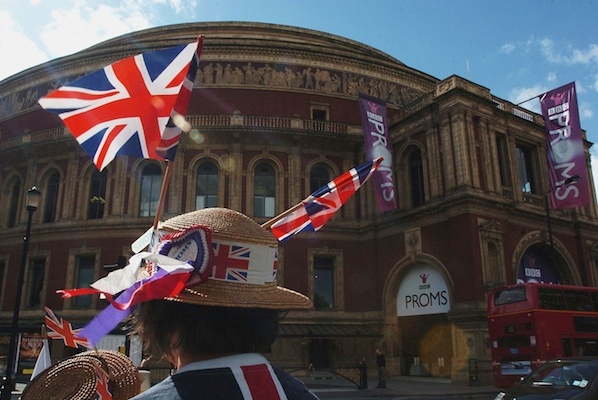With the publication of this year’s Proms brochure it is clear that what was already large has just become larger; and what was already a smooth production has just got smoother. Whether this is sustainable growth, or even desirable growth, are questions for the future; but I think I’ve discerned one of the main reasons for the current expansion — Wagner’s anniversary.
Verdi’s has had less impact. It is inconvenient when two great names share a year. Bach and Handel made 1985 difficult to manage, while Lassus and Palestrina caused some of us agonies of balance and regret in 1994. On both of those occasions, one composer got a larger bite of the cherry than the other, and so it is going to be this year. The problem is that neither Wagner nor Verdi can be celebrated in a small way, which presents something of a challenge to a festival expecting to be big by definition. The Proms have gone for Wagner, with just one Prom dedicated exclusively to Verdi, but no fewer than seven to Wagner, each featuring an opera, four of them making up a complete Ring cycle.
Verdi will be celebrated with half a concert dedicated to some of his best-loved arias; and by special visits from two Italian orchestras not often heard here. The arias will be sung by Joseph Calleja, the Maltese tenor who starred in the Last Night of 2012, accompanied by the Orchestra Sinfonica di Milano Giuseppe Verdi under Xian Zhang (5 September); while on 20 July the Orchestra and Chorus of the Academy of Santa Cecilia in Rome under Antonio Pappano will give a concert that will culminate in his Four Sacred Pieces. By contrast, the seven Wagner operas on offer are: Das Rheingold (22 July), Die Walküre (23 July), Siegfried (26 July), Götterdämmerung (28 July), Tristan und Isolde (27 July), Tannhäuser (4 August) and Parsifal (25 August).
This is an incredible achievement for a single festival, and would exhaust most. However there is also the small matter of Britten’s anniversary to consider, which in this series of all series didn’t want to look too second best. In fact it doesn’t: there is a complete performance of Billy Budd from the Glyndebourne Festival Opera (27 August), which makes up just one of 22 of Britten’s compositions to be performed. And, as it seems on the back of the Britten festivities, Tippett is represented by seven appearances, including the first complete Proms performance of his opera Midsummer Marriage since its première in 1977 (16 August).
Linked also to an anniversary — that of Lutosławski in 1913 — are concerts dedicated to Polish composers, as well as a complete cycle of the Tchaikovsky symphonies. The Polish composers include Szymanowski, Penderecki, Górecki and Panufnik and their series will feature the debut of the Warsaw Philharmonic Orchestra under Antoni Wit (23 August) playing Lutosławski’s Concerto for Orchestra and Panufnik’s Tragic Overture and Lullaby. The Tchaikovsky cycle features many orchestras, not least the Oslo Philharmonic under Petrenko (2 September).
These are the headline acts and the main themes. There are many others. I liked the subsection entitled ‘Rarely performed Piano Concertos’ (including Glazunov’s Piano Concerto No. 2, Mendelssohn’s Piano Concerto No. 1, Prokofiev’s Piano Concerto No. 2), which gave me an inkling of how much fun the planners of a festival with the resources of the Proms must have. Less fun, perhaps, is the routine commissioning of (and finding champions for) new works — always under the reliable banner ‘Demonstrating the BBC Proms’ firm commitment to new music’ — which this year yields 18 world premières, including one by Britten.
With all this talent and activity to introduce it is hardly surprising perhaps that the publicity machine has concentrated on one or two glitzy rogue items, such as the Doctor Who Prom, while relatively underplaying the host of proper stars it has to choose from. Even the family events and the Proms Plus talks — much fanfared in the past — no longer leap off the page. And one thing is sure: the Proms have become more than ever a celebration of the contemporary scene. Almost every note being played was written after 1850. Blink and you would miss the gesture being made towards Gesualdo’s anniversary (Tallis Scholars, 14 August).
In case we were wondering how it is possible for such a festival to be managed in the current financial climate, the Proms brochure ends with this statement: ‘The Proms is entirely run and funded by the BBC through the licence fee. The total cost of the Proms season, including hire of the Royal Albert Hall, artistic costs, management and extra events, not including Proms in the Park, is around £9 million with an expected £4 million generated through box-office income.’ No nonsense and fearless.






Comments